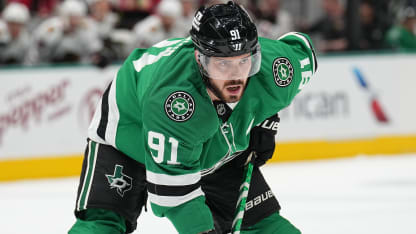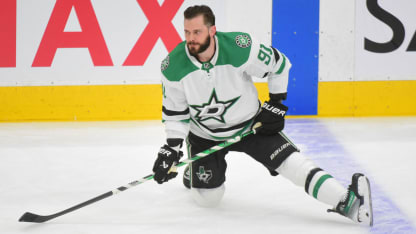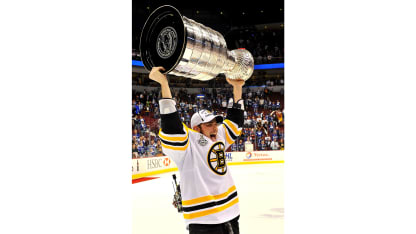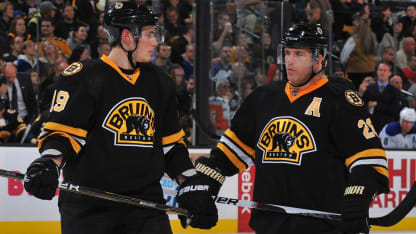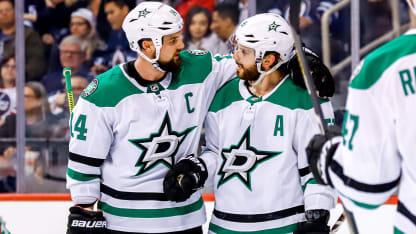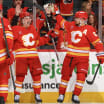It's why Duchene called him "a high-end, Swiss Army knife."
"I take a lot of pride in being on the second power play or on a second or third line, putting up numbers as a group to make this team successful," Seguin said. "Because you need deep teams to win."
You also need leaders.
The Stars lost Joe Pavelski to retirement after last season, a key cog in their lineup and in the room. Others have worked to take on the roles that he held, the ways he guided them.
Pete DeBoer, in his third season as Stars coach, saw Seguin's leadership take a jump last season and that growth has continued this fall. He isn't exactly a big voice, but he's there with a point and a message, a story 15 seasons in the making.
"It's what makes his message resonate so much with young guys," DeBoer said. "He's been that young, immature guy and he's grown into the leader and the man he is now. I think when you've traveled that road, your message resonates a little bit more."
* * * *
It was easy, that first time. Or, if not easy, quick.
By his third season in the NHL, Seguin had made it to the Stanley Cup Final twice and won the Cup once, in his rookie season. He was too young to understand how rare that was, how many players work their whole careers and never make it to a Final, never win, retire with coulda and shoulda and voids on their resumes.
Which is why it would feel so different in Dallas.
"Totally different," he said. "Not knowing what the worth of the Stanley Cup back then was, compared to now, knowing how hard it is. I mean, it's night and day. I was a kid then."
He isn't now.
"I'm just a guy that's enjoying every day," Seguin said. "I've found the more I've gotten into my career, the more fun I'm actually having as far as just realizing that this crazy thing will come to an end and especially just enjoying the lulls."
When Pavelski arrived in Dallas, Seguin marveled at him and his ability to take what hockey gave him in stride. He wasn't discouraged when he started with three points in his first 13 games, not exactly what he wanted in his introduction to his new team and city.
"Nothing fazed him and that's the attitude I try to keep coming into," Seguin said. "It always felt so hard, and now for some reason it seems so easy. I don't know if it's like a switch that happened because I'm already at a point where I am pretty proud. I'm missing one thing and that's a championship in Dallas.
"I have a lot left in me, I still feel like. Another at least five, six, seven years; we'll see. But just realizing that I'm 32, turning 33 (on Jan. 31), I've got a baby on the way, I'm married, perspective has changed so much."
On this day, back in October, Seguin is in Boston, set to play the Bruins at TD Garden. He is standing in the visiting dressing room, a place he has played numerous times over the decade-plus since he last laced up his skates in the dressing room down the hall.
He is asked about his memories and returning to where he started his NHL career.
"So much has changed," he said.
So much has changed. In the city. In himself.
He is no longer that brash kid, the one who rolled his eyes and made a general manager doubt his future, the one who stirred controversy and scored goals. He has grown up, found his place, found his future.
"I have no regrets," Seguin said. "I would say these people probably have more regrets and it is what it is. It is what it is. Fortunately, it has been the best thing that has happened to me. Dallas is what's always been meant to be.
"I'm in a great place."
NHL.com staff writer Tracey Myers contributed to this report
